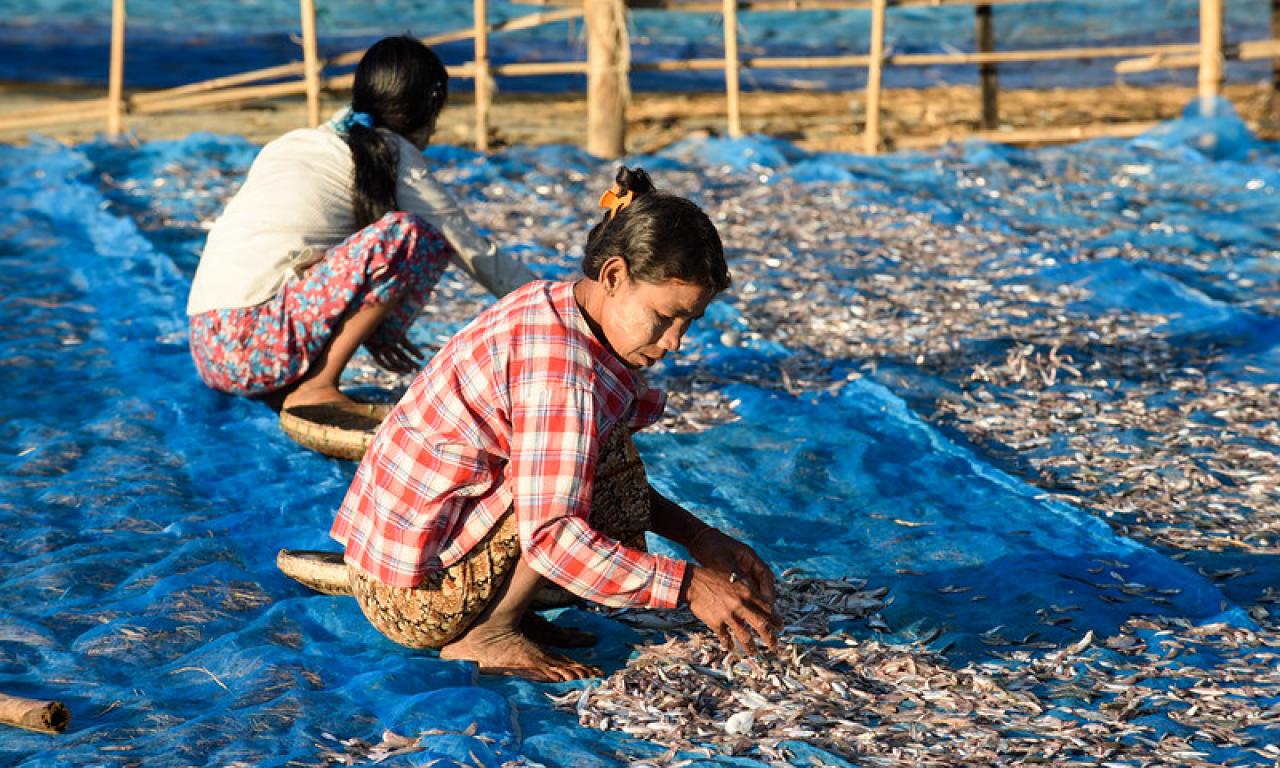
“The Sustainable Development Goals provide the most comprehensive vision for development that the world has ever seen,” said Dr. Gerald Singh of Memorial University during the recent Small is Bountiful virtual event.
Yet, it’s common in discussions on fisheries and oceans that people focus on SDG 14—the goal on life below water.
To achieve the complete vision of the SDGs, we must engage with all the goals, while recognizing that small-scale capture fisheries are impacted by, and can have an impact on, many of the SDGs.
“Small-scale fisheries are at the intersection between land and sea, cross-cutting the many spheres that the SDGs focus on,” said Dr. Ratana Chuanpagdee, research director of Too Big To Ignore.
“Thus, by securing sustainable and viable small-scale fisheries, we will be able to achieve many SDG goals and targets.”
The largest group of ocean stakeholders
Exploring this topic was the focus of a panel discussion, Small-scale fisheries as the nexus of SDGs to ensure the future we want, held on World Oceans Day on 8 June as part of the Small is Bountiful event.
Panel facilitator Dr. Philippa Cohen, Small-Scale Fisheries Research Program Leader, WorldFish, opened the discussion by highlighting that small-scale fisheries employ more women and men than all other ocean economic sectors combined.
She said that small-scale fishers and their communities are “interweaved, enabled and challenged” by the world’s progress or failure to meet the SDGs.
“First, the SDGs are the lived experiences of many millions of women and men in SSF. Our success, or our failure, to achieve the SDGs is what people experience every day,” she said.
“Second, the benefits of SSF—food, nutrition, income, and environmental stewardship—represent the foundations for many of the SDGs.
“Third, working with fishers and fishworkers is a critical pathway to achieve progress toward the SDGs in many contexts.”
Learning, hearing from SIDS
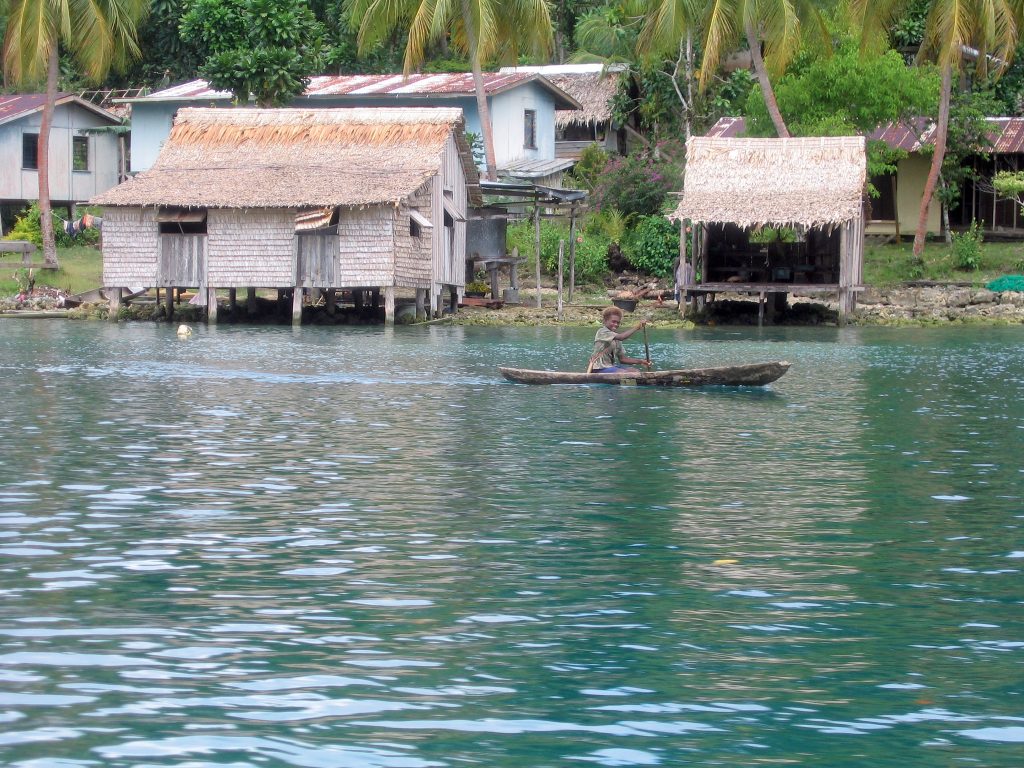
Small island developing states house just 1 percent of the world's human population. Yet, these islands are an important voice in conversations around ocean sustainability, said panelist Mele Ikatonga Tauati, a small-scale fisheries professional from the Pacific Islands.
“The relatively large exclusive economic zone of SIDS across the Caribbean, Africa and the Pacific, and their heavy dependence on the oceans, make them large oceanic states and an important stakeholder in discussions on ocean futures.
“The oceans are our lives. It’s a strong part of our culture and traditions that have been with us for centuries.”
“In many SIDS, there are strong forms of coastal fisheries management, with communities taking the lead of managing their own fisheries. A lot can be learned from SIDS in achieving sustainable development,” said Tauati.
Learning from agricultural systems
Globally, of the 120 million people involved in capture fisheries, 90 percent are in small-scale fisheries.
Small-holder agriculturalists (families that farm less than two hectares of land) are similarly high—80 percent of all farmers are smallholders. These farmers contribute up to 70 percent of the world’s food.
The SSF sector can learn much from agricultural systems on enabling and disenabling smallholders, said panelist Dr. Jemimah Njuki, Senior Program Specialist, Canada’s International Development Research Centre.
Dr. Njuki challenged the panel audience to see that it is “not women that need to be fixed.”
“We need to fix the system to enable progress on SDGs 1, 2 and 5 on reducing poverty, zero hunger and gender equality,” she said.
Dr. Njuki presented this challenge in relation to the global food system, defined as the elements and activities relating to the production, processing, distribution, preparation and consumption of food, and the outputs of these activities.
“For a long time, there has been a focus on individual women and training more women. But the problem is not with the women—they’re already in the food systems, providing most of the labor in the production, processing and trading of food in the global south.”
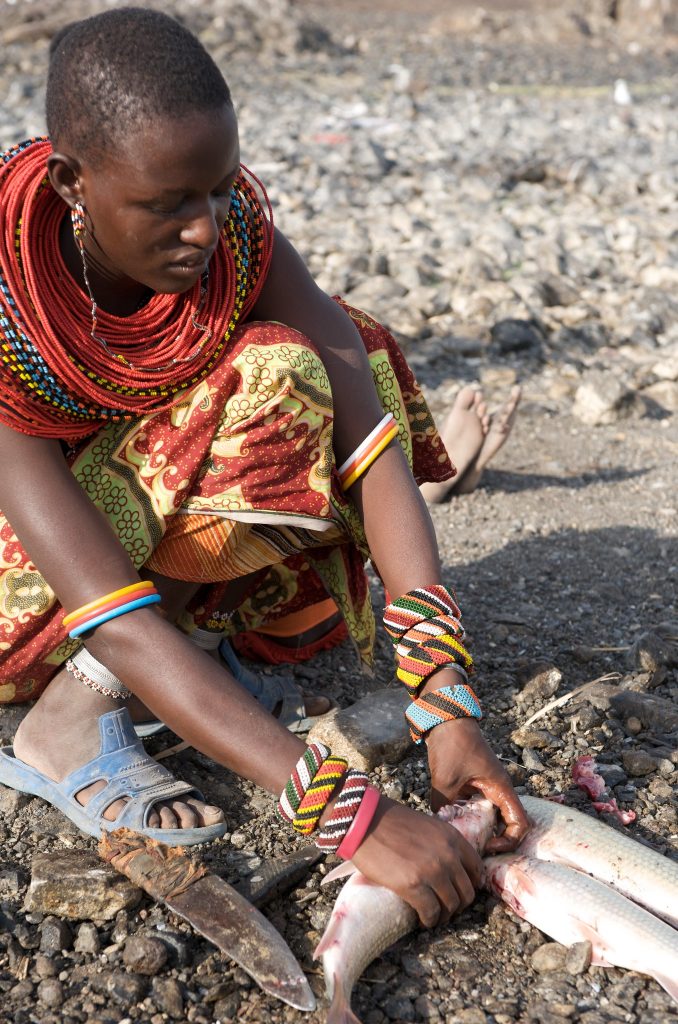
She highlighted the need to look at the “food system and its inherent inequalities.”
“We need to address social norms and masculinity, support women’s leadership, change the structures, and improve access and control of resources and income.
“We won’t achieve the SDGs by focusing on one woman at a time—we need to change the structures.”
Speaking on the theme of World Ocean Day 2020, innovation for a sustainable ocean, Dr. Njuki emphasized the need to think beyond technological innovations.
“We must think about social innovations, which look at changing power dynamics and relations, and institutional innovations to change how we combine scientific knowledge with indigenous knowledge that farmers and fishers have held for generations,” she said.
“If you put tech innovations into a system that’s already unequal, it won’t create any benefits.”
Beyond production and protein
In many fisheries discussions, there is a preoccupation with increased production and protein.
The emphasis on protein really “limits the multiple value of fish and other aquatic foods,” said panelist Dr. Shakuntala Thilsted, Research Program Leader for Value Chains and Nutrition, WorldFish.
“We must first recognize that fish and other aquatic foods are components of diverse, nutritious diets,” she said.
“Fish is a rich source of multiple micronutrients—vitamins, minerals as well as essential fatty acids.
“Plus, the multiple micronutrients are highly bioavailable compared to those found in plant-based foods. This means these nutrients are better absorbed in the human body, so their value is much greater than that from plant-based foods.”
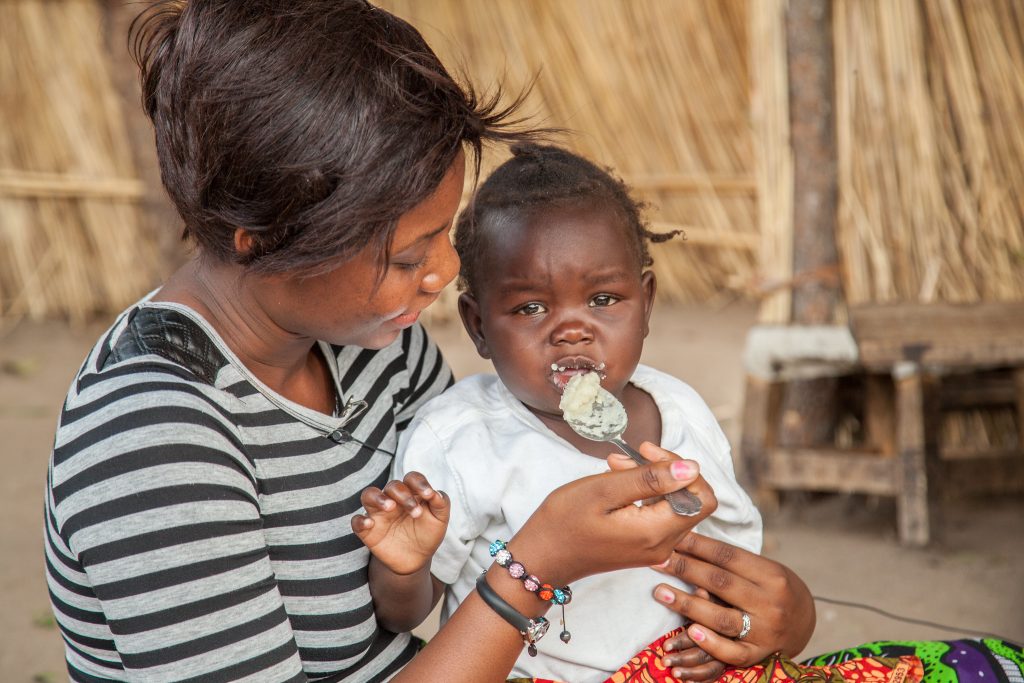
Dr. Thilsted highlighted that fish consumption is particularly critical in the first 1000 days of life (from conception—in pregnant and lactating women—to the child’s second birthday).
“Fish contains essential fatty acids and vitamin B12. Eating fish will help to boost neurodevelopment and cognition in children,” she said.
“The effects of good nutrition in the first 1000 days of life will last for the entire lifetime and create intergenerational benefits.”
Nourishing local populations
Globally, it’s often said that we need to produce more fish to meet growing demand.
But, asked Dr. Cohen, what if what’s already being caught from the world’s oceans could be better used to meet nutritional needs?
That’s definitely possible, responded panelist Dr. Christina Hicks, an environmental social scientist at Lancaster University.
“Half the world—3.5 billion people—is at risk of calcium deficiency. Recent research by Lancaster University, WorldFish and partners showed that in areas suffering from calcium deficiency, like the Caribbean, for example, the existing fish catch is really rich in calcium,” she said.
“It highlights that we need to innovate to improve the distribution, local access and affordability of fish catches.
“And if we are to innovate, it’s important that we can develop approaches to support economic growth without exacerbating inequalities.”
Benefits, risks of growth
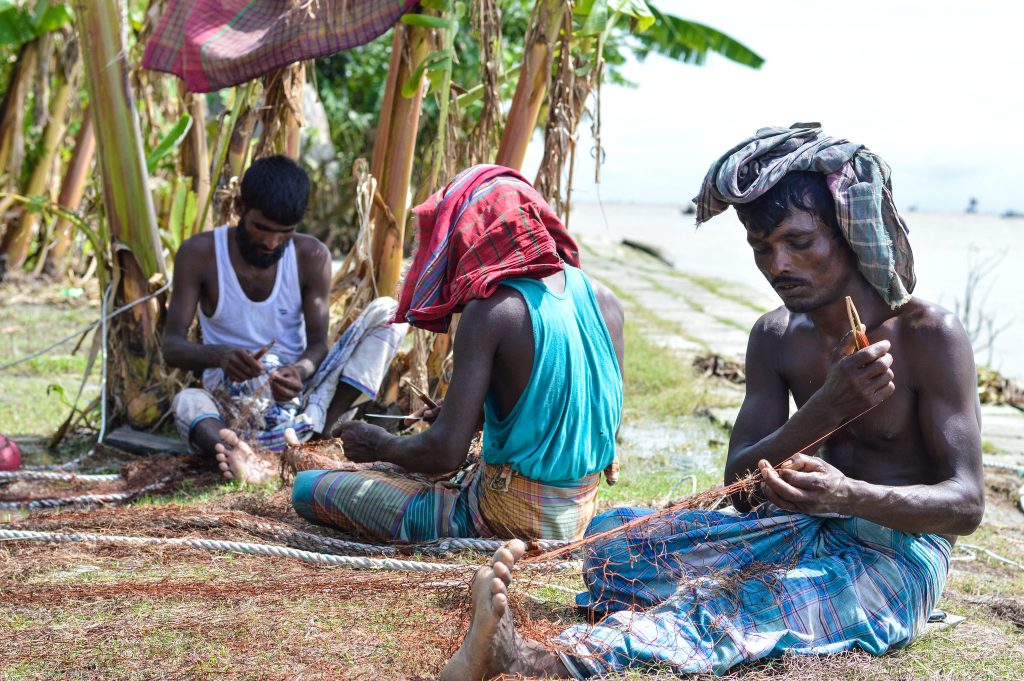
Often, there’s an assumption that creating economic growth (SDG 8) will positively contribute to reducing poverty and zero hunger (SDGs 1 and 2), said Dr. Cohen.
“Given the huge number of people involved in the agricultural and SSF sectors, if we get growth in these sectors right, we’ll get a lot of things right,” responded Dr. Njuki.
“But if growth isn’t equitable or inclusive, we’re not addressing SDG 10 on reducing inequality. We must work in an inclusive way, so we leave no one behind.”
The panel acknowledged that achieving the SDGs is complex, given the goals are interlinked, in turn creating synergies and tradeoffs.
Mele Tauati spoke of the need to share the cost of adaptation between communities and the state, specifically referring to SDG 13 on climate action.
“SIDS contribute less than 1 percent of global greenhouse gas emissions. Yet, being remote island communities, SIDS are extremely vulnerable to the growing impacts of climate change, which are affecting livelihoods,” she said, building on what she’d said in a Small is Bountiful webinar on SSF and SDGs held on 3 June 2020.
“There is a global responsibility to hear the voices of SIDS and act. We need more collaboration at national, regional, international levels to ensure that SSF livelihoods are secured and sustainable.”
Commanding greater attention
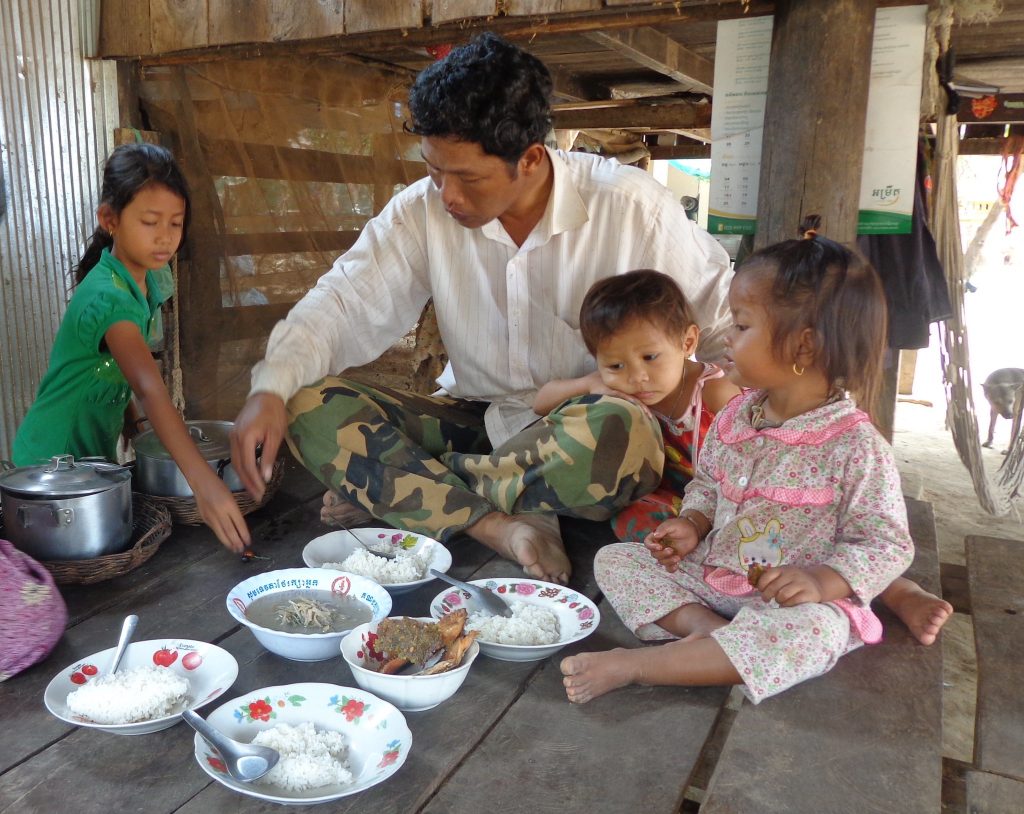
Despite the nutritional benefits, fish seems to receive less attention from policymakers and the development sector than other foods, especially staple foods.
Dr. Thilsted said that discussions on food systems must change to look at consumers first, instead of starting with production systems.
“We have to pay more attention to consumers, their demands, their aspirations, what they want and the knowledge on which they base their demands and aspirations.”
“We need a multi-sectoral approach—of course, fish alone is not sufficient to address all our dietary needs. We need to reach out beyond fisheries stakeholders and engage with those funding and working on nutrition, health, education, and emergency responses if we want fish to have huge impacts.”
The panel discussion was organized by WorldFish and the Ocean Nexus Program, with support from CESAM, University of Aveiro, TBTI, IPC Fisheries Working Group/SSF-GSF Advisory Group and PLAAS (University of Western Cape). The panel was part of the Small is Bountiful virtual event (1–8 June 2020) coordinated by Too Big To Ignore with the support of many individuals and organizations.
Related publications:
- Harnessing global fisheries to tackle micronutrient deficiencies
- Hidden harvest: The global contribution of capture fisheries